
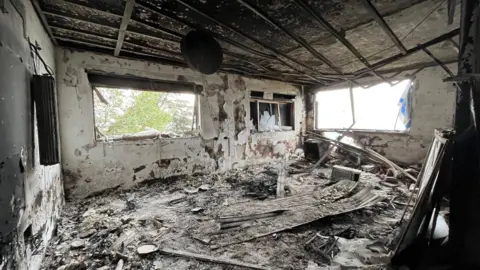 BBC
BBC
Three quarters of the buildings in Kibbutz Menara have been damaged during the war
In Kibbutz Menara in northern Israel, the sound of gunfire from across the border marked the first day of the ceasefire with Hezbollah.
Menara sits face to face with the Lebanese village of Meiss el-Jabal. It was one of several places where the Israeli military said it fired towards suspects spotted nearby.
They were not gun battles with Hezbollah fighters, it said, but warning shots to push the suspects back. Four of them were arrested.
The handover of control on the Lebanese side of the border, from Israeli troops to the Lebanese army, has not yet begun.
And Lebanese residents have been told not to return there yet.

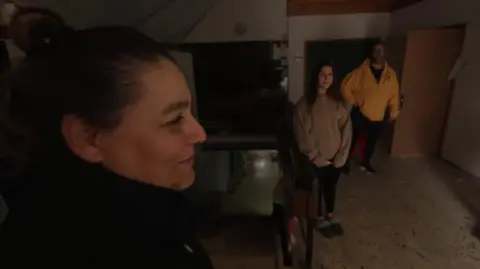
Meitel was among the kibbutz residents drawn home by the ceasefire
In Menara, the ceasefire bought Meitel and her 13-year-old daughter Gefen back their first visit home in more than a year.
“This is unbelievable. It’s like a nightmare,” Meitel said, as they inspected a damaged building.
They left the kibbutz on 8 October 2023, when Hezbollah began firing rockets into northern Israel the day after Hamas’s deadly attack on southern Israel triggered the war in Gaza.
Israel’s government said its intense bombardment and ground invasion in Lebanon would ensure the tens of thousands of northern Israeli residents of the evacuated from their homes would be able to return safely.
Prime Minister Benjamin Netanyahu promised that would happen during a speech on Tuesday in which he said he had agreed to the ceasefire because the war had set Hezbollah back “tens of years”, destroyed most of its rockets, and demolished its infrastructure next to the border.
However, Meitel said she had little trust in the ceasefire, noting the gunfire that echoed through Menara's empty streets during her visit.
“They want to come back. We need to keep them away,” she said.

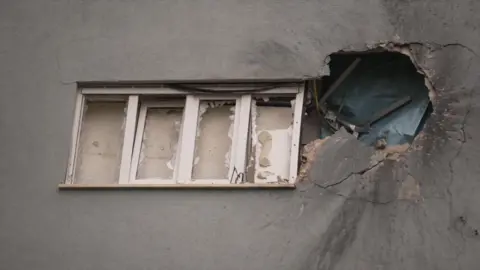
Hezbollah missiles punched straight through the walls of many buildings
Three quarters of the buildings in Menara have been destroyed in almost 14 months of fighting, along with the electricity, sewage and gas supplies.
The roof of the communal kitchen, caved in from a direct hit, lies tangled in hills of concrete and metal on the floor.
In house after house, the tell-tale tattoos of shrapnel damage, and rough-edged holes from anti-tank missiles have left homes burned out and unsafe.
Through the burned-out windows, the many shattered houses of their Lebanese neighbours are also visible.

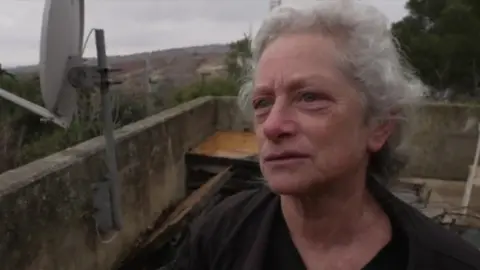
Orna fears that families will not come back to live in the border community
Orna has lived in Menara through two previous wars but she said this ceasefire was different.
“Our forces will not leave these villages and will not allow terrorists to come back here. You can hear it yourself. Whenever someone tries to come back, they will be shot,” she explained.
“I personally will be come and be here regardless of what goes on there. But I’m a crazy, stubborn old lady. Families will not come back here. It’s impossible.”

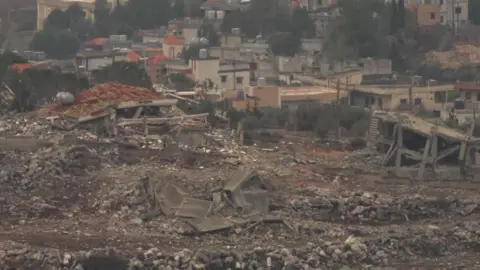
The Lebanese village of Meiss el-Jabal is just across the border from the kibbutz
The ceasefire is triggering the first discussions of what it would take for residents to return.
Repairing Menara will take months, but rebuilding a sense of security could take longer still.
The damage, a practical challenge, is also a reminder of what Hezbollah weapons can do.

 1 month ago
5
1 month ago
5


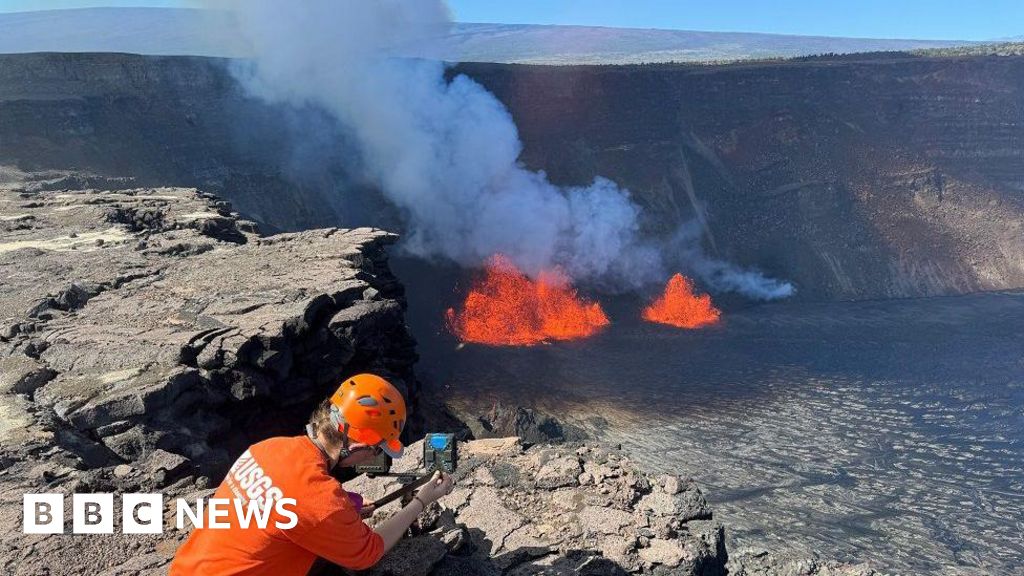

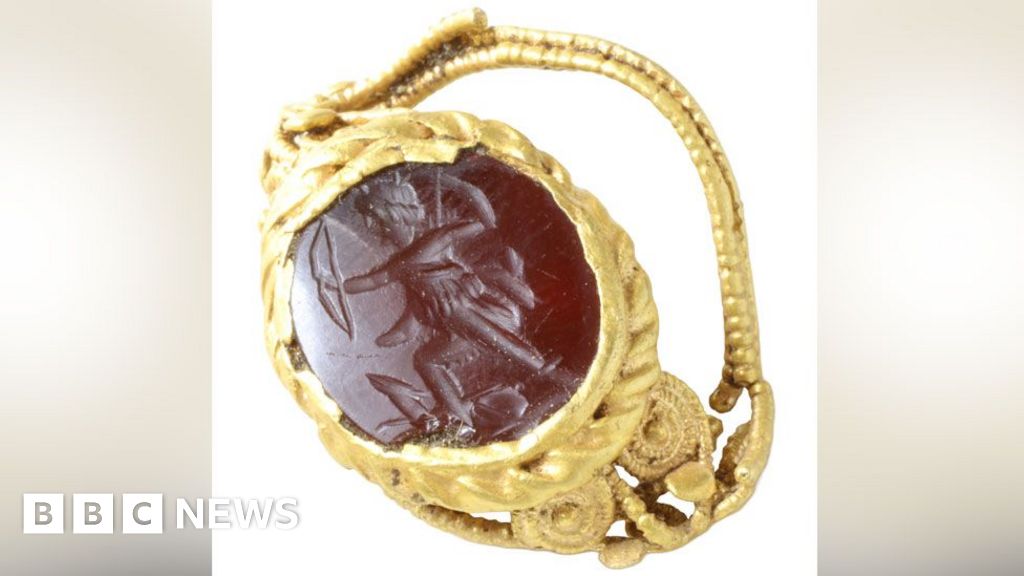










 English (US) ·
English (US) ·